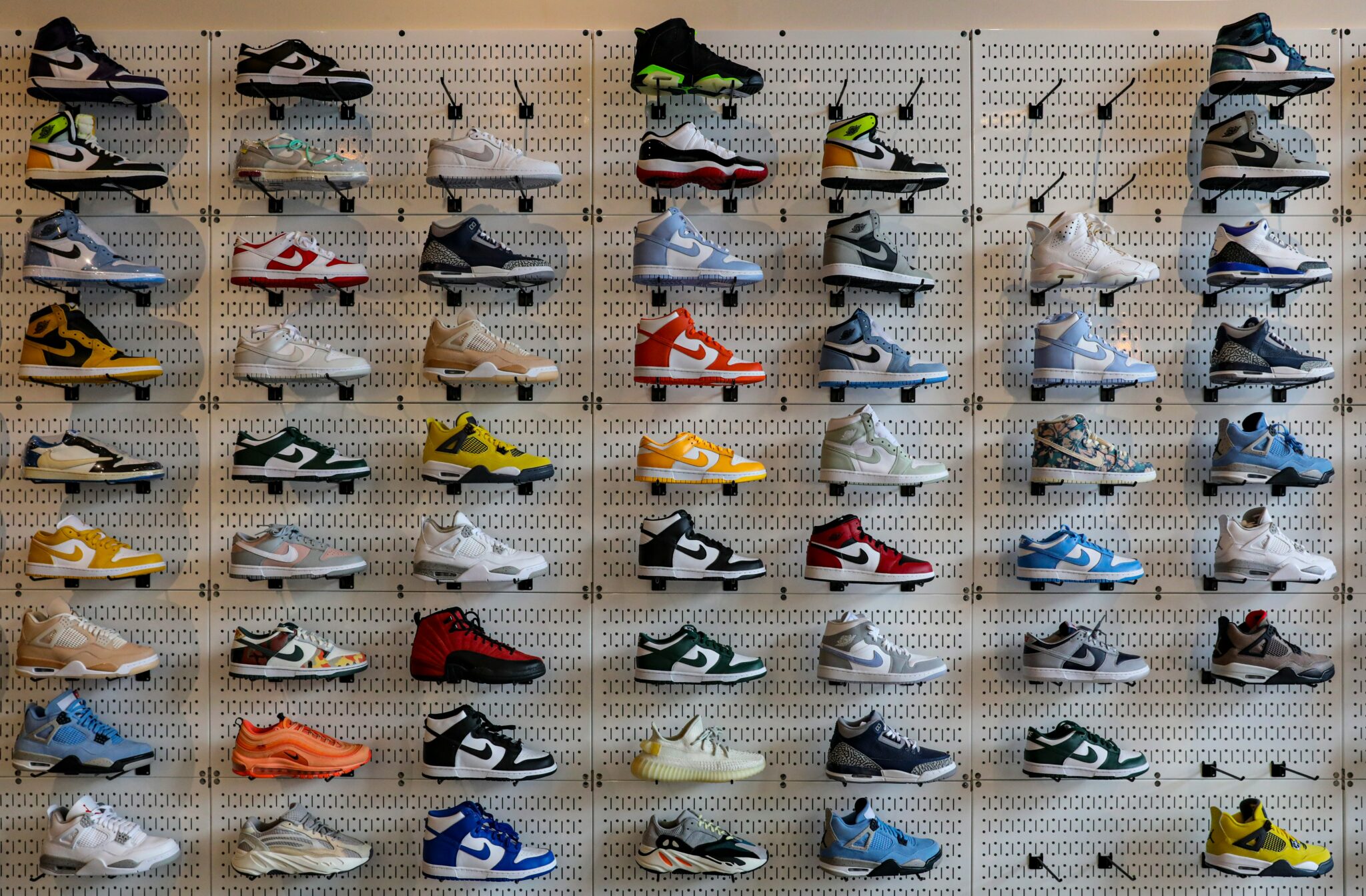It's easier to buy the most popular styles now. Photo by Mick Haupt, Courtesy Unsplash.
“The reselling game has changed a lot, no more lines and bulk purchases,” said Yomayra Sandoval, a store manager at Foot Locker. During her 20 years in the sneaker business she has seen the rise and fall of the sneaker resale market. ”Most releases these days don’t allow resellers to make the profit they used to,” she explained.
The hot resale market made sneaker buying and reselling a big business, valued at $10.6 billion in 2022 globally. Entrepreneurs bought up new releases and Sandoval said she saw them become almost violently aggressive.”“Resellers always went crazy when it came to certain releases. There have been several acts of aggression and involvement of weapons on a line waiting for a shoe,” she said.
Reselling took off as entrepreneurs used bots, automated programs that add items to carts and allow quick check out, to buy multiple pairs of sneakers during a very sought after release. Botting gobbled up sneakers and essentially guaranteed that sneakers would get sold for a higher price. This was great for resellers, but put a typical consumer with no access to a bot at a disadvantage.
Several factors caused the decline of reselling. Sneakers became much more available because manufacturers released more of the most popular and highly hyped styles. Major brands like Nike began to develop ways to work against resellers and not support this industry. Nike updated its terms of service with new rules allowing them to cancel orders placed by bots. The new terms also allow them to reject any requests for refunds and suspend accounts if they are suspected of reselling.
The fall of the Nike Dunk Low Panda serves as an example of the decline. The shoe was released in March of 2021 and started a massive wave of reselling of Nike Dunks. On the resale website Stock X, the Dunk Low Panda colorway peaked at prices upwards of $350 USD. Initially the shoe retailed at $100 USD and that meant resellers were making a profit that was more than triple the retail amount. Nike’s limited release of the shoe gave resellers a reason to hike prices. Now the shoe holds little to no resale value as the market. The price on Stock X is slightly above and often below the retail price.
Giancarlos Sabala, who goes by @flips_nyc on Instagram, made a lot of money by reselling sneakers in Inwood, New York. He has felt the pinch. “Sneaker reselling in recent times is not as popular and lucrative as it once was. A lot of resellers, including myself, have moved on to different things. Of course people still resell but it is no longer as easy as it once was which has led to resellers moving on.”
The death of sneaker reselling is great for consumers. Randy Matias, sneaker consumer and collector, explains that the sneaker game has gotten better. “We can actually buy the shoes we want easily now, like it used to be. I can walk into my nearest Snipes or Foot Locker and see good shoes sitting.”
It is also good news for sneakerheads who collect. “Sneaker culture brings sneakerheads together. I was never really a fan of reselling because it made it impossible to buy several releases. I want to get the shoes I like and wear them and to be honest with you that has been very easy to do in comparison to recent years,” Matias explained.
Tags: downfall of sneaker reselling Foot Locker Giancarlos Sabala Julian Rivas Nike Dunk Low Panda sneaker reselling Sneakers Yomayra Sandoval






